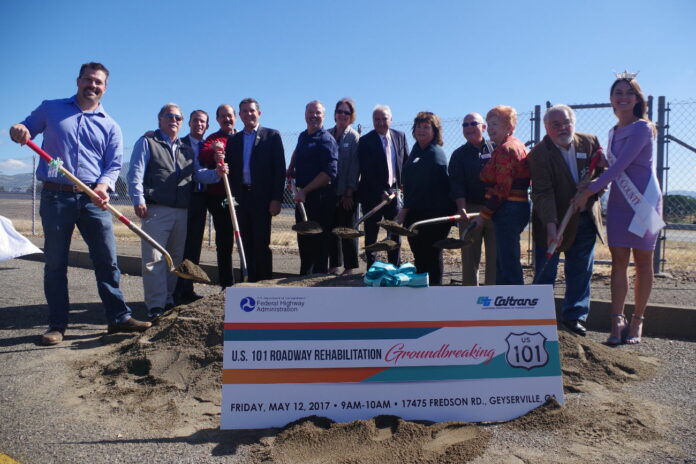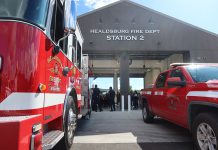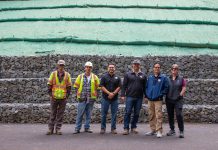
There was no shortage of controversy and confusion this past year in the 95448 zip code, but community spirit and goodwill often prevailed.
Join us as we take a look at the larger trends and stories that moved Healdsburg this year.
Local and national politics
Healdsburg voted overwhelmingly for Hillary Clinton last year and many bristled when Donald Trump was elected President.
They responded by joining the Women’s Marches in January and forming a local chapter of “Indivisible” to oppose Trump’s policies.
Fears of how national politics might affect local lives prompted the Healdsburg Unified School District to declare itself a “safe haven” for immigrants and the city of Healdsburg to adopt a resolution proclaiming its commitment to diversity.
Local politics got off to a bumpy start at Healdsburg City Hall. City councilmember Eric Ziedrich ended 2016 by resigning his seat after voters rejected a ballot measure designed to loosen housing growth controls.
With only four seats filled and two rookie councilmembers (Joe Naujokas and David Hagele) the council struggled a bit, then appointed former councilmember Gary Plass to fill Ziedrich’s seat until a special election could be held in June.
At the special election, former councilmember Leah Gold defeated Plass and two other challengers. Later in the year, she announced that she will run for re-election when her term is up in 2018.
Fires and floods
It got positively biblical this year in Sonoma County and Healdsburg did not go unscathed.
A record year for rainfall taxed emergency services to keep roads and drainages clear and St. Paul’s Church opened its parish hall as an emergency shelter for the homeless when rising creeks flooded encampments.
Despite the persistent precipitation, downtown businesses did not suffer flood damage, as had occurred in the past. City officials pointed to preparations, planning and luck.
The October firestorms menaced Healdsburg and Geyserville and for a few days, it seemed like fire was all around, to the north, south and east. Neighborhoods along Healdsburg’s vulnerable eastern flanks and the hills above Geyserville were under evacuation advisories, but the fires slowed and were eventually contained.
The disaster taxed Healdsburg’s housing stock, as landlords who lost homes in Santa Rosa evicted local tenants in what became known as “secondary displacement.”
Healdsburgers responded to the fires with charity and hard work. City staff and volunteers opened an evacuation center at the community center early Monday morning the week of the fires and fed, housed and comforted evacuees for a week.
Volunteers cooked food and collected essentials as well, including a “free store” that provided clothing and household goods to hundreds of fire victims.
Round and round we don’t go
One of the largest infrastructure projects in local history is commonly known as the “roundabout project,” but it’s much more. The project involves creating new sewer, water, electric, gas and other utility connections in one of the busiest intersections in town, and completing it with a roundabout that city leaders believe will alleviate chronic traffic problems.
The project struggled in 2017 and early in the year, city leaders announced that it was expected to be a full year behind schedule, a prediction confirmed in December.
The city has expressed concerns about the contractor running the job, but initial attempts to make changes were unsuccessful and at city hall, the talk now is about “making the best of it.”
Downtown merchants say the work has hurt their businesses’ bottom line and the community rallied behind the Singletree Café, which predicted that it could close due to reduced business.
Paving, big and small
Never one to miss an opportunity for a catchy moniker, State Senator Mike McGuire dubbed a highway paving project from Windsor to Geyserville as “The Big Pave.”
More than halfway done by year’s end, the project created a few sleepless nights for those who could hear old pavement being pulverized, but new smooth asphalt was welcomed.
In town, 43 separate city street sections were improved. Using a “chip and seal” method that was a bit messy at first (during the “chip” part), the resulting seal has been popular with local motorists.
Tourism and alcohol
The community continues to wonder how much is too much, when it comes to tourism.
The city tightened its alcohol policies in 2017, writing into policy a former guideline that allows no more than one tasting room per block face in the downtown area.
Proving that all politics is personal, the city council also made an exception to the rule, allowing an art gallery on Healdsburg Avenue to sublet to a tasting room.
Councilmembers and gallery supporters made the case that gallery owner Paul Mahder is such a good citizen, opening his large gallery to charitable causes, that his contribution to “the public good” made the exception reasonable.
The community grappled with tourism impacts throughout the year. A citizen group held a “Sustainable Tourism Forum” in May and warned against unbridled growth in hotel rooms.
The Healdsburg Tourism Improvement District was renewed by the city council in November, but not until the council and the community discussed how to balance the positive impact of bed taxes on community services with concerns that tourism pushes out other businesses, dominates parking and places upward pressure on housing costs.
Next week: Who were the newsmakers in 2017?








